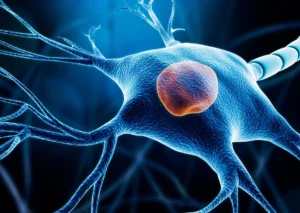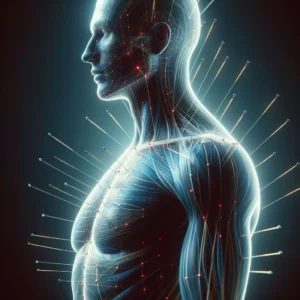Introduction
A prostate cancer diagnosis can be overwhelming, and surgery is often a crucial part of the treatment plan. One of the concerns men often have after prostatectomy, or surgical removal of the prostate gland, is how it will affect their sex life. While some changes are to be expected, sex after prostatectomy can still be fulfilling and enjoyable. This article explores what to expect regarding sex after a prostatectomy, discusses potential challenges, and offers tips for a healthy and satisfying sex life post-surgery.
Understanding the Impact of Prostatectomy on Sexual Function
The prostate plays a key role in male sexual function. It produces seminal fluid, which nourishes and protects sperm, and it contributes to orgasm. During a prostatectomy, some nerves responsible for erection may be affected. This can lead to erectile dysfunction (ED), a common concern for men after surgery. The extent of nerve damage and the resulting impact on sexual function vary depending on the type of prostatectomy performed:
- Radical Prostatectomy: This surgery removes the entire prostate gland and some surrounding tissues. It carries a higher risk of ED compared to other procedures.
- Nerve-Sparing Radical Prostatectomy: This surgery aims to preserve the nerves responsible for erection. While not always possible, it can significantly reduce the risk of ED.
- Robot-Assisted Laparoscopic Prostatectomy (RALP): This minimally invasive surgery uses robotic assistance and may offer a slightly lower risk of ED compared to traditional open surgery.
Common Changes After Prostatectomy:
Here’s a breakdown of some potential changes men might experience after a prostatectomy:
- Erectile Dysfunction (ED): Difficulty achieving or maintaining an erection is the most common sexual concern after prostatectomy. The severity of ED can vary from mild to complete.
- Decreased Libido: Some men experience a decrease in sex drive (libido) after surgery. This can be due to emotional factors like anxiety or depression, or due to hormonal changes following the removal of the prostate.
- Retrograde Ejaculation: After a prostatectomy, semen no longer exits through the penis during orgasm. Instead, it travels backward into the bladder (retrograde ejaculation). This doesn’t affect sexual pleasure but can be a psychological adjustment for some men.
- Dry Orgasms: Due to the lack of seminal fluid, orgasms might feel less intense or “dry” after surgery.
The Road to Recovery:
While recovering from surgery takes time, there are steps you can take to improve your sexual health after a prostatectomy:
- Open Communication with Your Doctor: Talk openly with your doctor about your concerns and expectations regarding sex life after surgery. They can assess your individual situation and advise you on recovery timelines and potential treatment options for ED.
- Realistic Expectations: Be patient with your body and understand that regaining sexual function can take time. It’s important to set realistic expectations and communicate openly with your partner.
- Maintaining Erectile Function: Regular use of medications like oral phosphodiesterase-5 (PDE5) inhibitors (e.g., Viagra, Cialis) can help improve blood flow to the penis and facilitate erections. Other options include suppositories inserted into the urethra or vacuum erection devices (VEDs).
Beyond Medications: Strategies for a Fulfilling Sex Life
Medications can play a role, but a holistic approach is key to a satisfying sex life after prostatectomy. Here are some additional strategies to consider:
- Pelvic Floor Exercises: Strengthening the pelvic floor muscles can improve blood flow and overall sexual function.
- Communication and Intimacy: Open and honest communication with your partner about your needs and limitations is crucial. Explore alternative forms of intimacy that don’t rely solely on penetration, such as massage, oral sex, or emotional connection.
- Addressing Emotional Concerns: Anxiety, depression, and body image issues can negatively impact sexual function. Talking to a therapist can help address emotional challenges and improve your overall well-being.
- Maintaining a Healthy Lifestyle: A balanced diet, regular exercise, and managing stress can all contribute to improved sexual health.
When to Seek Additional Help:
If you experience persistent ED (lasting longer than 6 months) or difficulty adjusting to sexual changes after prostatectomy, it’s important to seek additional help. Your doctor can evaluate your situation and explore treatment options tailored to your specific needs. This might include:
- Referral to a Urologist: A urologist specializes in the urinary and male reproductive system and can offer specialized treatment for ED.
- Sex Therapy: A sex therapist can help couples navigate the emotional and physical changes related to sex after prostatectomy and develop strategies for a fulfilling sex life.
Embracing Intimacy: Resources and Support After Prostatectomy
The journey to a healthy and fulfilling sex life after prostatectomy is unique to each individual. Here are some additional resources and support systems that can be valuable:
Support Groups: Connecting with other men who have undergone prostatectomy can be a source of invaluable support and shared experiences. Support groups offer a safe space to discuss challenges, ask questions, and learn from others. Here are a couple of resources to find a support group:
- The Prostate Cancer Foundation: https://www.pcf.org/ offers a patient support network that can connect you with local support groups.
- The American Cancer Society: https://www.cancer.org/ also provides resources for finding prostate cancer support groups.
Online Resources: Reputable online resources can offer valuable information and guidance on sex after prostatectomy. Here are a few trusted sources:
- The National Cancer Institute: https://www.cancer.gov/ provides a section on sexual health after prostate cancer treatment, including information on different treatment options for ED.
- The American Urological Association: https://www.auanet.org/guidelines-and-quality/guidelines offers patient education resources on male sexual health, including information on ED and treatment options.
Maintaining a Positive Outlook:
A positive outlook and a willingness to explore new avenues for intimacy are key to navigating sex after prostatectomy. Here are some tips to stay motivated:
- Focus on Progress: Celebrate small victories along the way. Even slight improvements in sexual function can be a sign of progress and a reason to stay motivated.
- Explore New Possibilities: Don’t be afraid to experiment with different positions and techniques that might be more comfortable or enjoyable after surgery.
- Maintain Open Communication: Talk openly with your partner about your anxieties and preferences. Explore ways to make sex a pleasurable experience for both of you.
Living a Fulfilling Life After Prostatectomy
While prostatectomy can lead to changes in sexual function, a satisfying sex life is still achievable. By prioritizing open communication with your doctor and partner, exploring treatment options, and embracing a holistic approach to intimacy, you can navigate this journey and reclaim a fulfilling sexual life. Remember, you are not alone. There are resources available to support you, and a world of possibilities waiting to be explored.
Conclusion
Prostatectomy can be a life-saving treatment for prostate cancer, but it’s natural to have concerns about how it might affect your sex life. The good news is that with the right approach and support system, sex after prostatectomy can be enjoyable and fulfilling. Here are some key takeaways to keep in mind:
- Open Communication is Key: Talk openly with your doctor about your sexual concerns and expectations before and after surgery. They can guide you through the recovery process and recommend appropriate treatment options.
- Be Patient with Recovery: Regaining sexual function takes time. Be patient with your body and celebrate any improvements along the way.
- Explore Treatment Options: There are various treatment options available for managing ED after prostatectomy. Discuss these options with your doctor to find the best fit for your needs.
- Focus on a Holistic Approach: A healthy lifestyle, stress management techniques, and pelvic floor exercises can all contribute to improved sexual health.
- Embrace Emotional Well-being: Don’t hesitate to seek help from a therapist if you’re struggling with anxiety, depression, or body image issues related to sex after prostatectomy.
- Maintain Open Communication with Your Partner: Honest communication with your partner about your needs and desires is essential for navigating changes and exploring alternative forms of intimacy.
- Seek Support: Support groups and online resources can be valuable sources of information and shared experiences. Don’t hesitate to reach out for support.
- Focus on the Positive: Maintain a positive outlook and celebrate your progress. A fulfilling sex life is achievable after prostatectomy.
By prioritizing intimacy throughout your journey and embracing a collaborative approach with your healthcare team and partner, you can navigate the changes and reclaim a satisfying sexual life. Remember, you are stronger than you think, and there is support available every step of the way.




